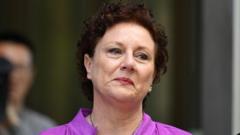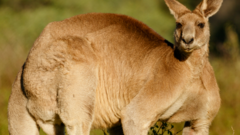Kathleen Folbigg, once deemed "Australia's worst mother," has been offered A$2 million for her wrongful 20-year incarceration—a sum her lawyer describes as profoundly unfair and widely criticized as inadequate compared to expected reparations for a miscarriage of justice.
Kathleen Folbigg's Compensation Offer Criticized as Insufficient

Kathleen Folbigg's Compensation Offer Criticized as Insufficient
The mother wrongfully imprisoned for the deaths of her children faces inadequate compensation for her suffering.
Kathleen Folbigg, who spent two decades in prison for the alleged murders of her four infants, has been offered A$2 million (approximately £975,580, or $1.3 million) in compensation, which her legal team argues falls drastically short of an appropriate amount for the emotional and physical toll she endured. Once labeled "Australia’s worst mother," Folbigg was exonerated in 2023 after new insights into potential genetic causes for her children's deaths emerged, leading to a significant reevaluation of her case.
Her attorney, Rhanee Rego, expressed disappointment, calling the offer "woefully inadequate and ethically indefensible," and noted that estimates for her potential compensation were closer to A$10 million or more, given the length of wrongful imprisonment. "The system has failed Kathleen Folbigg once again," Rego stated, highlighting the ongoing injustices faced by women in similar situations.
In 2003, Folbigg was convicted based mainly on circumstantial evidence, including her personal diaries which portrayed her as an unstable individual. After a prolonged fight and a landmark inquiry that revealed rare genetic mutations as the likely cause of her children's deaths, Folbigg was freed. Her case has sparked comparisons with other tragic miscarriages of justice within Australia, including that of Lindy Chamberlain, who received A$1.7 million for her wrongful conviction after serving only three years.
Experts and advocates are calling for increased compensation, with suggestions that Folbigg's payout should reflect the gravity of her experiences—potentially reaching figures around A$20 million. Professor Gary Edmond from the University of New South Wales argued that Folbigg’s compensation would need to be the largest in Australian history to adequately address the injustice she has suffered. Meanwhile, the New South Wales Attorney General, Michael Daley, has stated that the decision for the compensation amount was arrived at through careful consideration, albeit with a promise from the government not to disclose specific details of that decision at Folbigg's request.
As the community reflects on this case, the discussion continues about the fairness of the system and the need for reformed responses to wrongful convictions, particularly concerning gender biases within the legal framework.




















